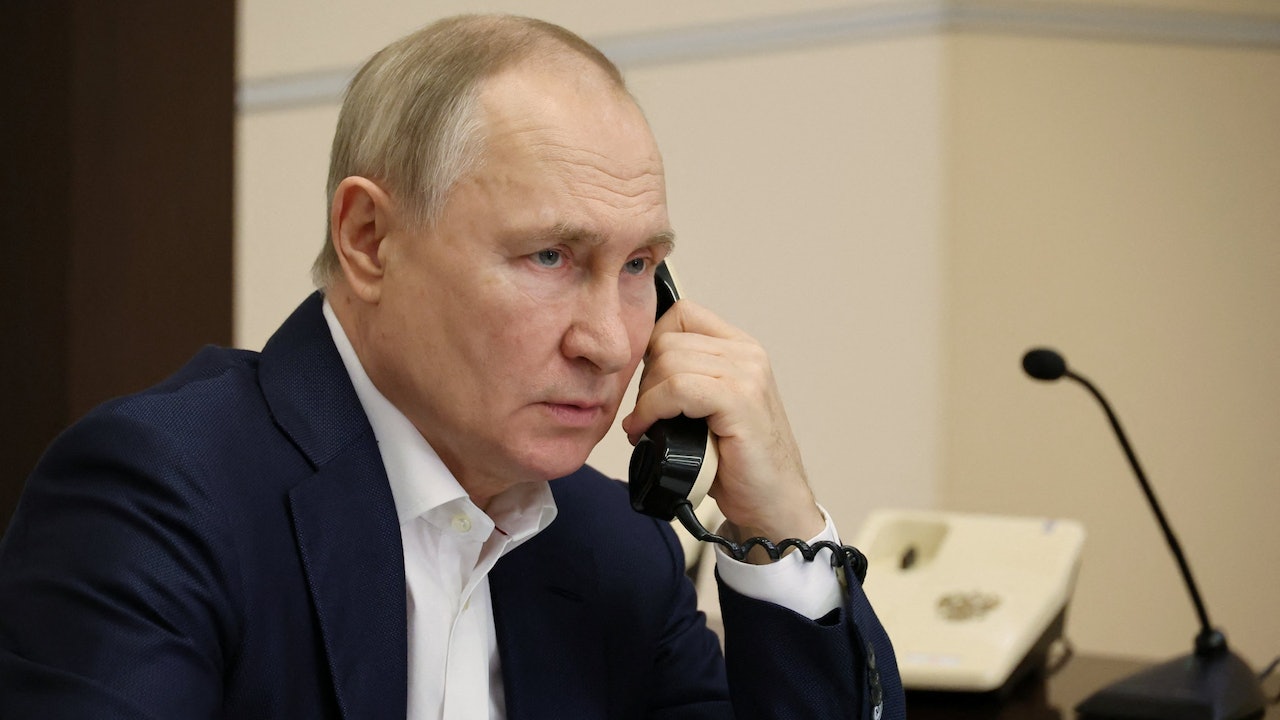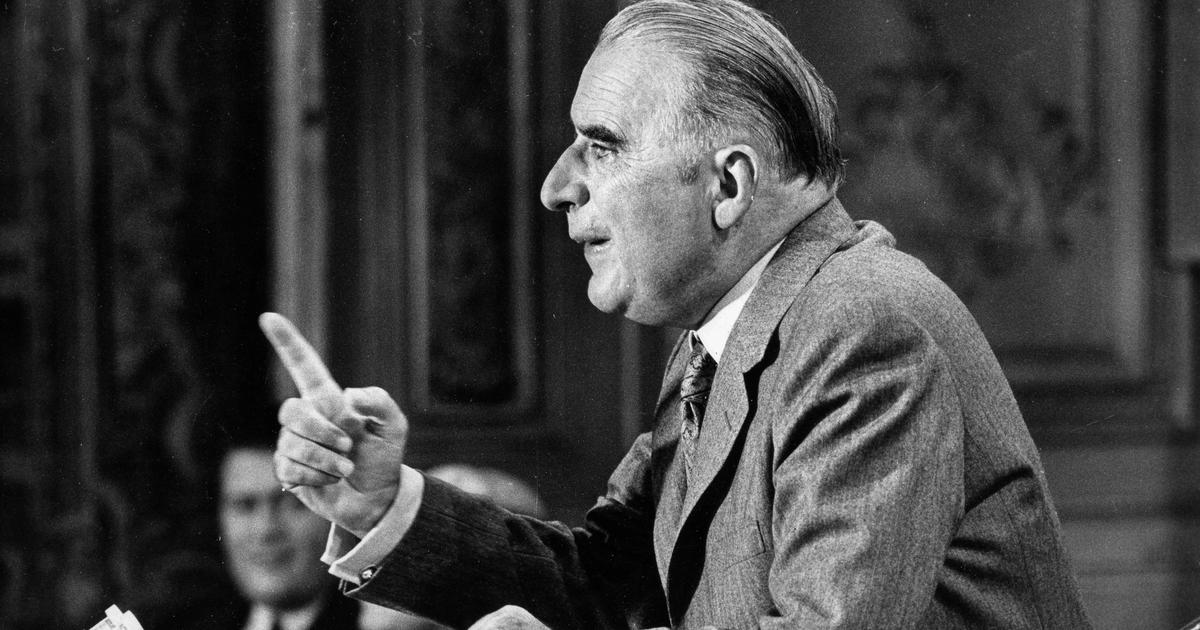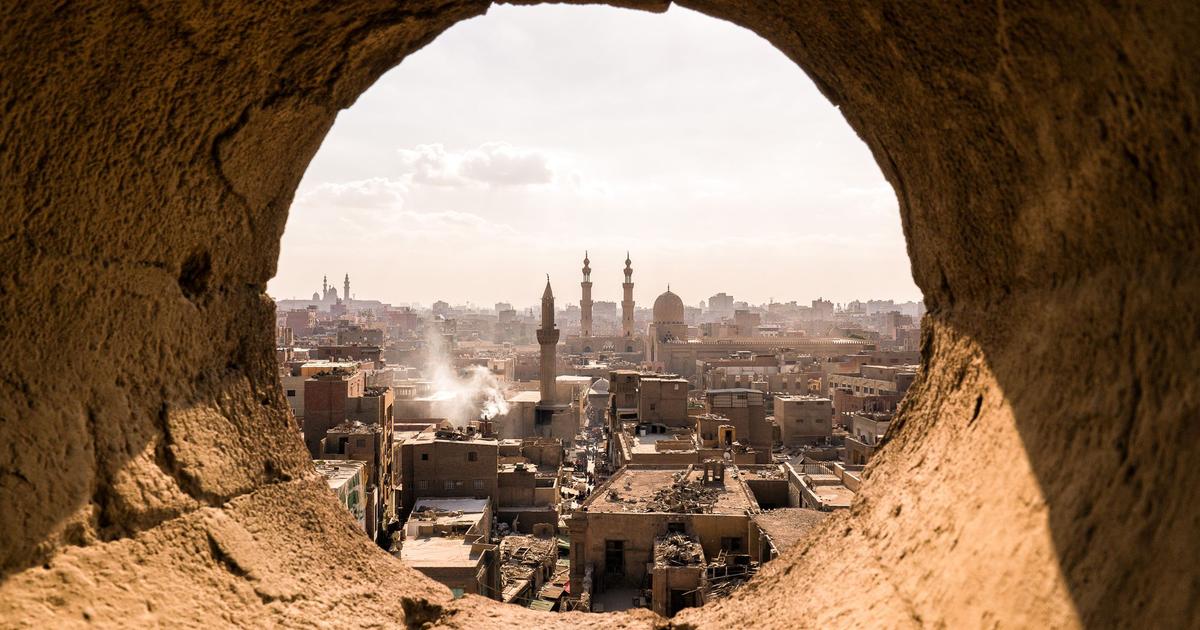"Potemkin" (Potemkin) has often appeared in the newspapers after the outbreak of the Russo-Ukraine war this year.
In modern political discussions, "Potkin Village" is used exclusively to refer to constructions or actions that are only intended to create a false impression, in other words, "a facade for external strength but internal leadership."
A lengthy article titled "Putin's War" published by The New York Times last month also cited the term "Potkin Village" to describe the rebuilt Russian military after Russia invaded Georgia in 2008 Of course, the main purpose of the article is to explain why the Russian army, which was previously imagined to be astonishingly powerful, will fall into the 11th month of bitter fighting in Ukraine.
This article is divided into six parts and is an extremely detailed investigative report.
The authors use multiple layers of evidence, such as interviews with personnel at various levels in Russia, Ukraine, and the United States (including people who were close to Putin at different times), intercepted content during the Ukrainian war, and Russian military documents, to analyze from tactical perspectives. Mistakes, Putin's arrogance, the internal decay of the Russian army, the collapse of the front line, the division of the military class, and how soldiers become cannon fodder, etc., to try to explain "why one of the strongest armies in the world is under the leadership of Putin". Led by a lauded strategist, it falters in the face of a much smaller adversary."
The story of vivid picture and sound
Regarding the analysis of the situation on the Russian battlefield, "Putin's War" did not exceed the main points that military analysts around the world have been discussing over the past ten months, but provided concrete stories with names and evidence for various abstract explanations.
For example, the article cites a Ukrainian Air Force pilot named "Oleksii", describing how he waited for the Russian army to wipe out this obvious target in one fell swoop when many Ukrainian Air Force assets were urgently gathered at the same air base in central China at the beginning of the war Case.
In the end, however, it took four days for the Russians to attack, by which time most of the Ukrainian air force had dispersed, reflecting a lack of coordination and a slow chain of command within the Russian military.
The Ukrainian winter has slowed down the fighting, but the fighting on the front lines has not stopped.
(Reuters)
Another Russian infantryman, Nikita Chibrin, said that he always thought that he came to Belarus only for training, and he received a simple order to enter Ukraine until the day before the battle.
Another Russian soldier said that he received the order only an hour before the march, and the order required him to drive the military vehicle into Kyiv 18 hours later. However, due to the heavy military vehicle, the road was unable to bear it and was destroyed. for more than a day.
After Russia's original plan to quickly defeat Ukraine failed, the Russian army's food, drinking water and other supplies were in short supply.
The article cites CCTV footage showing Russian soldiers collecting supplies on store shelves, and cites diaries left by Russian soldiers to describe how soldiers went out to collect medicine and food—“These people went into one housing unit after another, taking Come out with a big bag of stuff, it’s the prettiest looting ever”—which also describes the soldiers’ joy when they finally found a grocery store.
"Putin's War" is full of similar stories, repeatedly showing vividly how Russian soldiers were discovered by communicating through ordinary mobile phone networks, fighter planes advanced without cover, tank tanks were filled with sand to avoid combat, recruits seemed to be Also rely on Wikipedia descriptions to learn all sorts of embarrassing situations with guns and the like.
This "one of the strongest armies in the world" seems to be just a "Potkin Village".
Regarding corruption in the Russian military, the article also cites the experience of a Russian military contractor named "Sergei Khrabrykh".
Khrabrykh claimed he received a panicked call in 2016 from a deputy defense minister saying officials were about to inspect a training base for the Russian Army's elite 4th Guards Tank Division.
Although the government spent huge sums of money on the base, the money was not spent on the base, and what Khrabrykh saw was a half-built building covered in rubble and with holes in the ceiling and walls.
The deputy defense secretary paid Khrabrykh the equivalent of $1.2 million to either renovate the building or disguise it from inspecting officials.
The story of Khrabrykh is like a modern version of "Potkin Village".
The article also pointed out that in 2019 alone, more than 2,800 Russian military officers were disciplined for corruption.
On December 21, in Washington, USA, Zelensky and Biden held talks in the Oval Office of the White House.
Zelensky said that being able to visit abroad this time proved that he relied on US assistance to keep the situation under control.
(Reuters)
Is Putin also "strong outside but capable inside"?
The reason why "Potkin Village" has become synonymous with "external power but middle-level effort" is actually derived from an allusion that happened on the land of Ukraine during the Tsarist Russian era at the end of the 18th century.
The protagonist Grigory Potemkin is the lover of Catherine II.
Potkin was appointed governor of Crimea after Russia annexed it from the Ottoman Empire in 1783.
In 1787, Ekaterina visited "Novorossiya" (Novorossiya, southern Ukraine), which had just been annexed, including Crimea. Potkin, in order to show his "achievements", went to the Dnipro River (Dnipro Temporary false towns were built on both sides of the River, so that Ekaterina, who was watching from a distance by boat on the river, could see the "prosperity" of New Russia with her own eyes.
Since then, the term "Potkin" has had its political meaning today.
Since Putin marched into Ukraine on February 24, 2022, the performance of the Russian army has been far below expectations. The reason for this has been generally incorporated into the blueprint of this "Potkin" by commentators.
Even Putin himself has fallen into "Potkin"-style doubts in Western public opinion: This man has always had the image of a strongman, with domestic power and international political skills, and he almost managed to bring Russia back from political and economic chaos in the 1990s. Is the strategist who was rescued from the bureau actually just a "facade of being strong on the outside and doing something on the inside"?
Year-by-year map of Ukraine border changes.
The "Novorossiya" (Novorossiya) region in southern Ukraine can be seen here.
(Wikimedia Commons)
Since the Russian army obviously failed to make a quick decision, various theories such as Putin's critical illness, Putin's old age and mental decline, and Putin's subordinates hiding the truth have long been popular.
The New York Times chose an image of an "Oriental dictator" to explain Putin's misjudgment of Russia's military power and the situation in Ukraine.
In the description of Putin at the beginning of its article, it described Putin as "extremely isolated under the epidemic, obsessed with his legacy, and confident in his own wisdom and martial arts."
Indeed, Putin once compared himself to Peter the Great. In June this year, he even claimed that Peter the Great won today's Saint Petersburg from Sweden through a war in 1702. beginning) does not mean that Russia took something away from Sweden, but just returned to Russia what should have belonged to Russia—perhaps, this statement in Putin’s mind also applies to Ukraine today.
However, it is not appropriate to label Putin with the stereotype of an Eastern dictator, and it is very likely that the West will make the mistake of underestimating the enemy.
The "New York Times" article first described Putin's imperial positioning with the incident that Putin erected the statue of Vladimir the Great outside the Kremlin wall in 2016.
Vladimir I was the leader who first turned Kievan Rus, which has the common roots of Russia, Belarus, and Ukraine, into a Christian country in the 10th century.
Vladimir is also Putin's name (Vladimir), which of course evokes associations - it is worth noting that Vladimir is also the name of Ukrainian President Volodymyr (Volodymyr), both of which are Vladimir's alienation.
Putin erected a statue of Grand Duke Vladimir I of Kyiv outside the Kremlin walls in 2016.
(Wikimedia Commons)
The article also quotes Oleg Tinkov, a former Russian bank tycoon who publicly opposed Putin's invasion of Ukraine this year, as saying, "When people around you have been telling you for 22 years that you are a super genius, you start to believe that you are." a genius".
The article also attributes Putin's confidence in his military operations to the successful annexation of Crimea in 2014.
Putin's isolation during the epidemic was also regarded by the author of the article as one of the reasons why Putin finally decided to enter Ukraine.
One person who met Putin in the second year of the pandemic quarantined for three days before meeting him, and then met Putin at a distance of 15 feet.
The article quoted people who knew Putin, saying that "Putin's isolation has deepened his radicalization", and pointed out that people view Putin as the most valuable asset, and even named conservatives who believed that Russia was in a battle of survival with the West Yuri Kovalchuk, a doctor, said that his access to Putin during the epidemic constituted his opportunity to influence Putin.
In the article's description, Putin is like a deep palace emperor who has been in power for many years. He is complacent because of the flattery of his courtiers, loses his strategist's wisdom, stays away from the outside world and misjudges the facts, and then goes to extremes by slander and instigation.
This is exactly the role of the West for Eastern dictators.
Misjudgments don't stop with Putin
The problem is, whether this interpretation of Putin is true or not, the misjudgment of the strength of the Russian military and Ukrainian resistance is not the exclusive province of "Oriental dictators."
The New York Times article described how Ukrainian Foreign Minister Dmytro Kuleba, U.S. Secretary of Defense Lloyd Austin and Chairman of the U.S. Joint Chiefs of Staff Mark Milley had a meeting two days before the Russian invasion (February 22) Conversations at the Pentagon.
At that time, regarding the U.S. prediction that Russia was about to march, Austin’s question was “What will you do if you are driven out of Kyiv?” It can be seen that Kyiv’s rapid defeat was exactly the U.S. prediction; Kuleba’s response was “We do not We will talk about this, not imagine this", reflecting that Zelensky was still incredulous about the Russian invasion at the time; and Mili's questioning of Kuleba was even described as a speech of "you are dead"-"They will die in a few days." will drive into Kyiv" "If you are not prepared, it will be a massacre".
There are still children living in the frontline fighting city of Bakhmut.
(Reuters)
It can be seen that it is not only Putin who overestimates the strength of the Russian military, but also the professional military leaders of the US Pentagon.
Since the whole world is wrong, why do we need to look for a hat of "Oriental dictator" for Putin's misjudgment?
Timothy Snyder, a professor of history at Yale University who specializes in the history of Central and Eastern Europe, believes that one of the reasons why Putin and the U.S. Department of Defense misjudged the Ukrainian war situation is a lack of understanding of Ukrainian national identity.
Let me ask, if Ukrainians were really just a type of Russians as people thought before the war, would they still persist in the war of resistance to the end like today?
If the Ukrainians had no will to resist, if Zelensky fled Kyiv to protect himself on the first day of the war, would this war still continue to this day?
"Putin's War" also has an interesting description about Putin and Zelensky.
The article stated that when Zelensky was elected in 2019, the Kremlin believed that Russia would have a partner. Based in Moscow, he once performed on Russian TV, and his victory also depended on the message of resolving the conflict between Russia and Ukraine at that time.
Unexpectedly, after Zelensky came to power, he still resorted to the policy of suppressing pro-Russian TV stations and wealthy businessmen, which disappointed Putin, and even called the Jew a Nazi.
This may be due to a lack of understanding of Ukrainian national identity.
Professor Snyder believes that modern Ukrainian identity includes diversity, that is, the acceptance of different religions, different origins, and different languages. Although since the Crimea incident in 2014, Ukrainian has gradually become this national identity. However, this embrace of diversity determines that Zelensky, who only worked hard to improve the Ukrainian language after entering politics, does not necessarily have Russia greater than Ukrainian in terms of national identity—this is precisely Putin’s misjudgment.
But why didn't the American political elites who stand on the opposite side of Putin make the same misjudgment?
Past mistakes do not determine future battles
The unsatisfactory progress of the Russian army in Uzbekistan has always been the basis for articles in the Western media.
"Putin's War" is no exception.
But is this kind of discussion about Putin's past mistakes really important to the study and judgment of future wars?
Judging from the war situation in recent months, Putin is definitely not a dictator whose brain has been corrupted by power, but a strategist who has the ability to learn from mistakes and correct them.
Russian President Vladimir Putin held a video call with Chinese President Xi Jinping on December 30.
(Reuters)
The "foreign strength and middle-ranking forces" caused by the corruption of the Russian army over the years, as well as Ukraine's will to resist Russia based on its national identity, are not elements of war that Putin can change in a short period of time.
As analyzed by The New York Times, Russia's military development has always been targeting the United States and NATO, and is good at using long-range missile attacks. Invading Ukraine with the army may be the "stupidest" decision.
However, since October 2022, Putin has used missiles and Iranian drones to continuously attack Ukraine's energy infrastructure from a long distance, and erected layers of fortifications on the edge of the front line. The main attack point of the army is almost only Udon Donets. One in Bakhmut.
This shift in strategy, if it finally forces Ukraine and the West to accept some form of truce on the spot, will definitely be a victory for Russia, which has actually occupied more Ukrainian territory.
At the same time, the division of the Russian military class mentioned in "Putin's War" has now significantly improved.
After the loss of Kharkov in September, the head of the Chechen army Ramzan Kadyrov and the founder of the Russian mercenary group "Wagner Group" Prigozhin (Yevgeny Prigozhin) did publicly criticize the Russian defense system. department.
However, the three forces have taken on a more coordinated look after Putin appointed their backed Sergey Surovikin as Ukrainian supreme commander in October.
This change also shows Putin's ability to correct mistakes.
Of course, the Russian army has recently been slammed by the Ukrainian army because of unauthorized use of private mobile phones, but these mistakes will be gradually corrected under the lessons of personnel loss.
After all, after knowing that he was powerless to take Ukraine quickly, as "Putin's War" also admits, Putin is engaged in a long-term, non-nuclear "struggle of will" with the West.
On the premise that Russia can continue to endure Western sanctions, Putin is betting that the West will eventually lose its will to stand up for Ukraine, and this day will be Russia's victory day.
Discussing Putin's mistakes over the past 10 months, of course, has its historical significance.
However, as we wait and see how the war in Ukraine will go, obsessing over Putin's mistakes is probably just a perspective that will eventually lead the West to underestimate its opponent and bring only short-term pleasure.
Dialogue with "The New York Times": This is not only a new year of Putin's war, but Europe's road to curbing inflation will be more difficult︱Anbang Think Tank looks at the world in 2023: Inventory of global conflicts beyond the Russian-Ukrainian war (2) Looking at the world in 2023 : An Inventory of Global Conflicts Beyond the Russo-Ukrainian War (1) The Inevitability and Contingency of the Russo-Ukrainian War Another Imaginary for the End of the "Post-Cold War Era" in 2023






